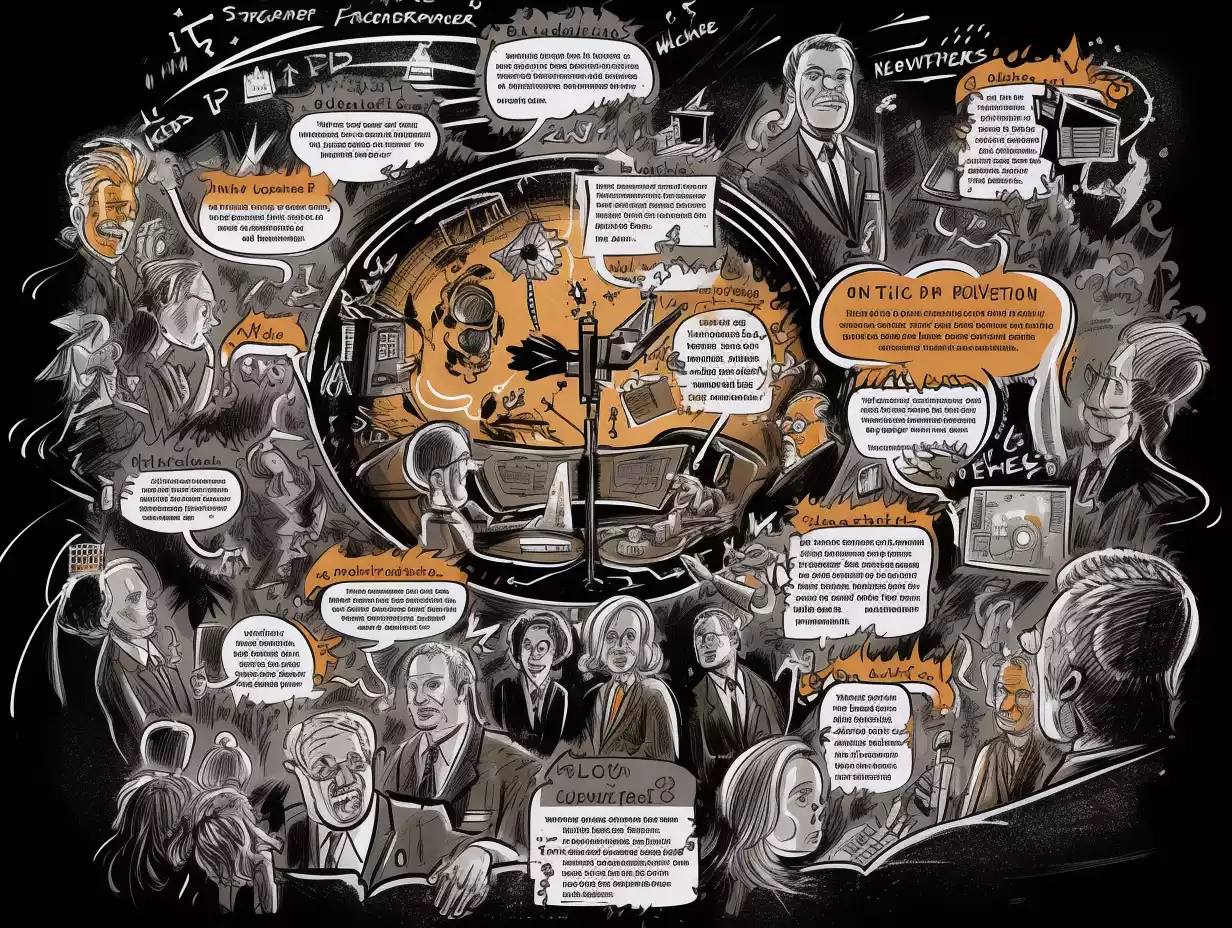What Is the Role of Storytelling in Startups?
In today’s competitive startup ecosystem, standing out is more important than ever. Founding a startup is akin to embarking on an epic quest, and like any classic tale, it requires a narrative that captivates and motivates. This is where storytelling is not just a skill but a crucial tool; it’s the connective tissue between your startup and the world.
The Pivotal Role of Storytelling in Startups
Imagine walking into a room filled with investors, each one’s attention a golden ticket to your startup’s future. Storytelling is what can make your pitch not just heard but felt. It transforms your data and business plans into a compelling narrative, spotlighting the unique value your startup brings to the table. More than just facts and figures, your story illustrates the human experience and potential behind your brand, laying down the tracks for an emotional connection with your audience.
For startups, the heart of storytelling lies in forging a brand that is at once distinctive and trustworthy. Your brand narrative is a beacon that guides not only customer perception but also investor interest. It shapes the way your products and services are viewed, turning them from mere commodities into catalysts for change, progress, or comfort in the lives of your audience.
The impact of storytelling on startups is tangible when looking at customer engagement too. Customers these days yearn for more than just a product; they seek a story they can participate in—one that mirrors their values and aspirations. When you share stories that showcase the problems your product solves and the journey it undertakes to reach the users, you not only engage but also inspire your clientele. This approach evokes not just interest but brand loyalty and advocacy, igniting a ripple effect of growth.
Internally as well, storytelling weaves the fabric of your startup’s culture. Stories shared within the organization foster a shared identity and alignment of purpose. They celebrate milestones, navigate through challenges, and embody the values you stand for. This narrative strengthens team cohesion and can turn employees into passionate ambassadors of your vision.
Harnessing the Benefits of Storytelling
Leveraging storytelling for startup success begins with resonating with your audience at a visceral level. Unlike bullet points, stories stick in the memory and evoke emotional responses. Humans are wired to relate to stories, and those told well form deep, lasting connections.
Differentiation in a crowded startup market can feel like shouting into the wind, but storytelling helps you turn up the volume and clarity. By laying bare the human element of your startup and the problems it aims to solve, you prevent your brand from becoming just another face in the crowd. Moreover, it simplifies complex concepts, making your innovative solutions more accessible and therefore, more appealing.
Strategies and Techniques for Effective Storytelling
To wield the power of storytelling, startups need to align their narratives with their target audience’s needs and desires. An authentic narrative is non-negotiable; the story must resonate truth and embody aspirational elements that the audience can relate to and rally behind.
Using visual aids in your storytelling can compound its effectiveness. Whether it’s videos, images, or infographics, they draw the audience in and create an immersive narrative experience.
Consistency is another cornerstone of successful storytelling. Cohesion across all media—be it your website, social media, or marketing materials—ensures your brand story not only reaches your audience but also stays with them.
Real-world Examples
Airbnb’s storytelling weaves personal experiences of hosts and guests globally, evoking the sense of belonging anywhere. Warby Parker shares emotive narratives of individuals’ struggles without glasses to advocate for the necessity of accessible eyewear. TOMS captured hearts with their “One for One” campaign, substantiating their social impact through powerful stories of giving.
Each of these startups showcases the incredible force of storytelling as a marketing tool and branding powerhouse, reflecting its capacity to drive a startup’s journey from obscurity to ubiquity.
Key Takeaways
- Storytelling sets your startup apart and creates a memorable brand.
- A compelling story translates to higher chances of securing investment.
- Emotional connections with your audience boost customer engagement and loyalty.
- A narrative cohesive with your brand values strengthens internal company culture.
Questions to Ask Yourself
- What is the core message I want my startup’s story to convey?
- How does my startup’s story resonate with the values and interests of my target audience?
- Are there elements of authenticity and inspiration in the stories I’m sharing?
- How can I integrate visual storytelling to complement and enhance my narrative?
- Is my startup’s story consistent across all channels of communication?
As you craft and refine your startup’s strategy, consider the sage advice and detailed insights laid out in the book “Impress Every Investor.” The guidance therein could very well be the secret ingredient to your startup’s narrative success.
Alternatively, if the power of storytelling captivates you but also leaves you seeking expertise, consider reaching out for specialized assistance. As pitch coaches, we can collaborate with you to hone your story to perfection, ensuring your pitch not only resonates but also impacts. Consider contacting us to explore how your startup’s story can turn the page to a new, exciting chapter brimming with potential and success.







